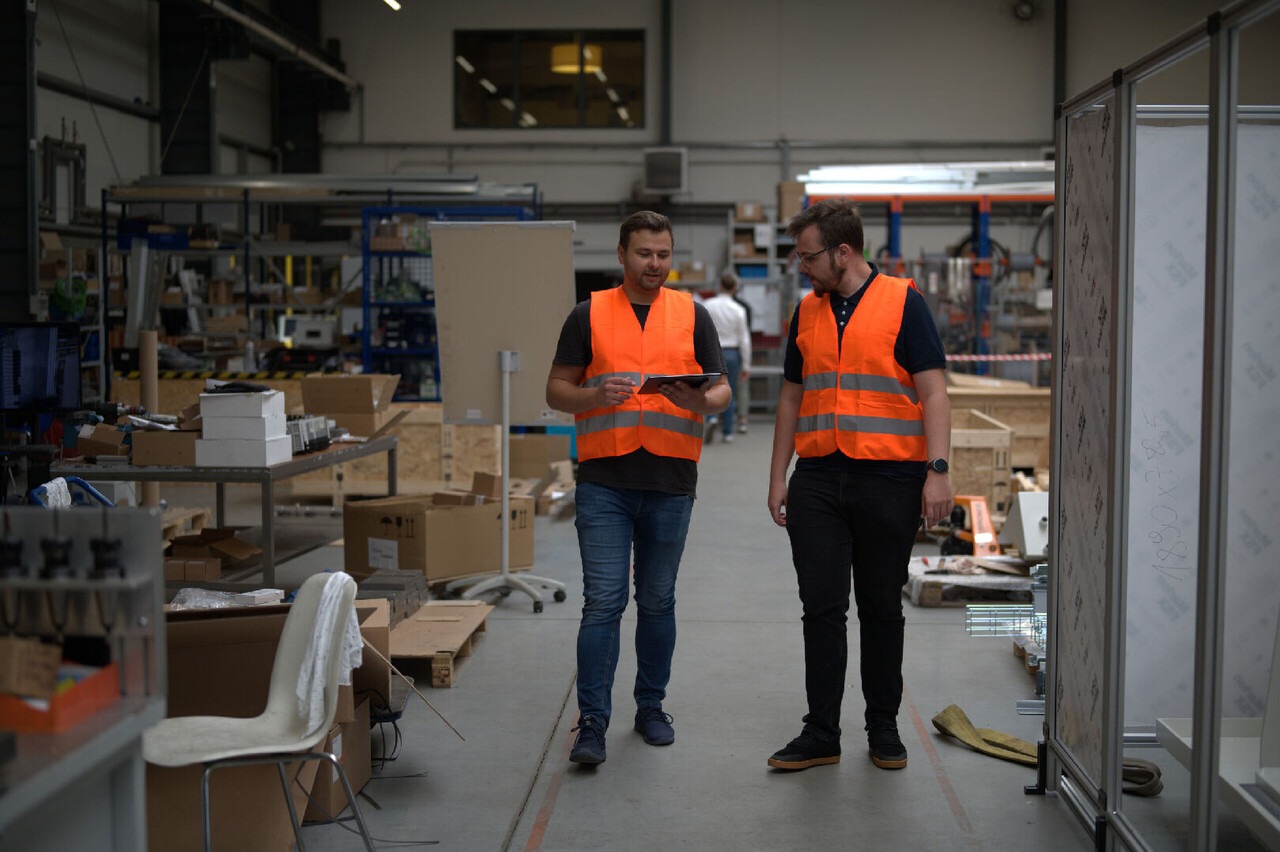“Production standardization is key to improving the security of supply chains and software in the industry” – this statement might sound like a cliché generated by AI, but there is much truth in it. Why? Read our article now and see for yourself.
Why do we need standardization?
The long road to the final product
Let’s start by acknowledging that very few factories are fully self-sufficient, meaning that most businesses cannot produce a final product entirely within a single facility. Most manufacturing plants rely on global value chains. Final products are often made from components sourced from various continents.
A good example of this is milk production, where raw milk from cows serves as the initial material. While the factory processes it, it still depends on other materials and components to deliver a finished product to customers. During milk production, the factory also requires packaging and labels, which are sourced from other companies.
Complex value chains and product traceability
The more complex the final product, the more intricate the value chain. This is clearly reflected in car production, which requires thousands of parts from hundreds of suppliers. The key here is for the factory that manufactures and brands the final product (in this case, the car) to ensure full traceability of components and semi-finished goods.
Naturally, every manufacturer aims to make their value chain as transparent and traceable as possible, so that every element and every entity involved in creating value is transparent with each other. At the end of the day, the factory producing the final product needs to have complete traceability of that product, along with its components and semi-finished goods. To achieve this goal, standardization—particularly in IT systems—is essential. What do we mean by this? Read on to find out.
Benefits of standardization in industry
Companies that haven’t modernized their IT infrastructure often face numerous challenges. Rather than using a single software solution, they employ several different systems, each serving a specific purpose. Fortunately, we are seeing a promising trend: companies are moving towards centralized management, which simplifies many aspects. This approach provides a single access point to all information, streamlining processes like training or onboarding new employees (since each team member only needs to become familiar with one system, rather than multiple).
Learning standardization from the best
Even if a company reaches a certain level of standardization within its own facility, there is still the question of how this affects relationships with clients or companies at the end of the value chain. This is where mature, larger entities in the chain have a significant role to play. They can assist smaller organizations in modernizing their IT infrastructure.
This is particularly crucial in distributed chains, where multiple entities contribute to the final product. Let’s look at an example: a steel mill supplies raw material to a factory that produces pipes. These pipes are then sent to another company for coating, then cut at a third facility, and finally packed at a fourth. They’re only assembled into specific vehicle models at the car factory. In such cases, there are numerous entities within the value chain. The car manufacturer’s goal is to be able to trace every component back to its origin—even back to the steel producer.
Developing digital identities and raising business awareness
Digital education as a key to security
As we’ve mentioned, leveraging the experience of major players is crucial in developing digital identities and business awareness. A company producing the final product can share its standards with subcontractors, aiding in their IT modernization and enhancing security, particularly against cyber threats.
This sharing of centralized experience can be done on multiple levels. Due to the scale, it encompasses aspects like:
- software development,
- access to better materials and cheaper components,
- a focus on security.
Remember, it’s always wise to seek expert advice or consult reliable sources (like our website at explitia).
What does security in industry entail?
When discussing industrial security, it’s important to define it accurately. It’s clear that in today’s world, the biggest threat to a factory is not typically a power outage or mechanical failure but rather a large-scale industrial network failure that could result from a cyberattack. This is why experience sharing and enhanced traceability are so valuable.
Modern production often relies on global value chains, and the complexity of processes demands careful attention to component traceability. Standardization, particularly in IT, facilitates centralized management and transparency, improving collaboration across the supply chain. This highlights the role of major industry players who can support smaller businesses in modernization and increasing security levels, especially against cyber threats. Digital identities and business education are becoming indispensable for creating a safer industrial environment.
Are you interested in digitizing your manufacturing plant? Would you like to discuss industrial digitalization? Contact us!


